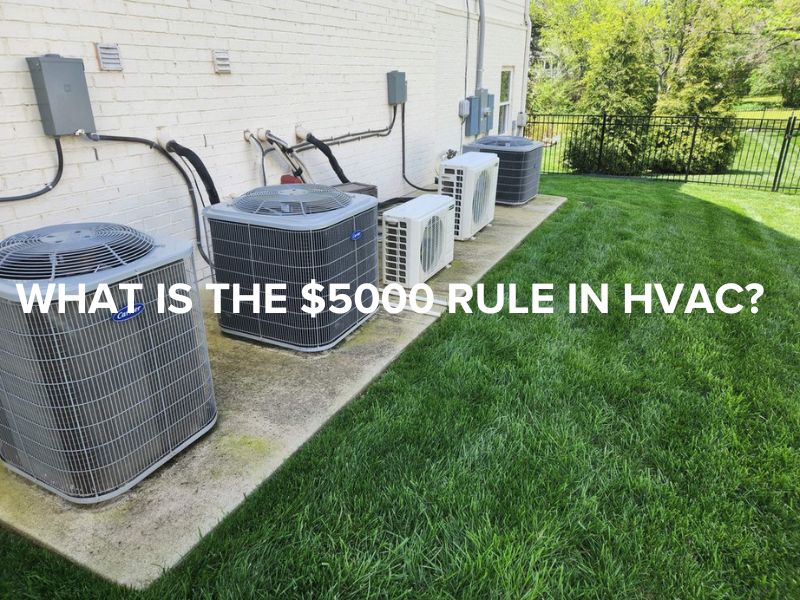The $5,000 rule in the HVAC industry refers to the cost of repair versus replacement. Generally put, when the cost of repairs exceed $5000 USD it is recommended to replace the heating or cooling device in question.
Homeowners are faced with difficult financial decisions. When any heating, ventilation and air conditioning systems repair exceed the $5,000 threshold – it is best practice to replace opposed to repair as there is a diminishing return with older appliances. All appliances have expected lifespans, and no appliance will operate forever. The older the appliance becomes, the higher the probability for needs of repairs and replacement services.
What Is the $5000 Rule Formula?
Heating, ventilation and cooling systems are instrumental in creating a livable environment in Tennessee. Most people are less than eager to spend money on household replacements. However, the $5000 rule can be calculated by:
- Take the age of the HVAC unit and multiply that by the cost of repair
- Age of HVAC x Repair Cost
- Is the total equal to or greater than $5000?
- If total exceeds $5000 replacing the unit is strongly recommended
- Is the total less than $5000?
- If total does not exceed or approach $5000, repairs are generally a financially reasonable option
Age (in years) of appliance x Repair estimate = Estimate

Why Is the $5000 Rule Important?
The $5000 rule is important because as HVAC systems age and depreciate, the overall health of the system also degrades. Over time, HVAC systems become less efficient and have a higher likelihood of requiring additional service and repairs.
The $5000 rule may need to be adjusted slightly to account for higher end appliances and inflation but it serves as a helpful guideline to assist homeowners when one must decide whether to repair or replace an appliance.
Additional Contributing Factors in $5000 Rule
This rule is a great barometer and guideline. However, there are additional contributing factors to consider with the $5000 rule. These factors include:
- Optimized Energy Efficiency – New heating and cooling systems have higher energy efficiency ratings relative to older HVAC appliances.
- Environmental Benefits – Outdated and old HVAC units consume higher amounts of energy. This consumption causes larger carbon footprints for their homeowners. Recent models have higher levels of energy consumption and are more eco-friendly for the environment and future generations.
- Improved Experience – New thermostats are much more precise than old analog thermostats. Smart thermostats can be triggered to turn on when a homeowner leaves the office, exits a room or at specific times of the day.
- Cost – The short term costs associated with replacing an HVAC system may be high initially. These costs however will likely be lower in the long run as less repairs and replacements are required with newer pieces of equipment. If an HVAC component is fifteen years or older, it may be time to replace the unit.
Need Help With the $5000 Rule?
Unsure how the $5000 rule impacts your property? Experienced Nashville HVAC technicians are here to help answer questions about the expected lifespan of existing appliances, repair and replacement options!
